My husband is a committed cyclist, and as he’s gotten more serious about his training, he’s taken additional care with his diet. This means, in part, that my full fat cooking is not always on the menu, so we have developed new ways to team cook and eat together, even when we are not eating the exact same thing. Bonding! In this guest post, he gives us a glimpse of a multi-layered dish that is sometimes second breakfast.—MS
In many cultures, food plays a central role in the social fabric. A meal is not simply a compulsory routine occurring at regular intervals throughout the day, it is a community ritual, an exercise in hierarchies, a time to forge and strengthen relationships. If you find yourself a guest in a culture with such inclinations, a willing interloper eager to partake in a nonnative feast, the stakes at the dinner table are high. Out of respect, you take care to polish your plate, which leads your host to presume you are incredibly hungry—or perhaps just a gluttonous American—and would fancy another serving immediately. To refuse an offering of seconds or thirds, even if you’ve not telegraphed an interest in more, is perceived as a wanton insult. Similarly, not finishing a portion of your meal or the extra helpings you may have unwillingly received will also be met with scorn. I’m not sure which is the greater faux pas. It’s a classic Catch-22.
Cyclists also tend to have a close relationship with food. We need it for strength. We need it to train hard and finish strong. We need it for recovery, to nourish and replenish our sacred glycogen stores. For some, food serves as a reward. I’ve done X amount of work and burned Y amount of kilojoules, so I’m entitled to Z. For others, it serves as fuel. When you eat to fuel your body, the act of eating takes on a quality that approaches the sublime. You begin to savor every bite, exploring the bouquet of tastes, textures, and sensations as they cross your palette. To devour a meal quickly would somehow be the ultimate gesture of disrespect to the sustenance you have labored to create and consume.
As an illustration of the idea that simple can be divine, I submit one of my favorite meals. On the surface it may appear fairly basic, however careful examination reveals a complex and rewarding combination of flavors. Kattouf calls it “Power Oatmeal.” I call it heaven.
Correct me if I’m wrong, but there’s just something comforting about the texture and warmth of freshly cooked oatmeal. And if it happens to be a slightly chilly morning, one that requires slippers, the steam rising off the oatmeal adds an additional layer of nostalgia. Nestled within the oatmeal’s warm embrace you find the tartness of the blueberries balanced perfectly with the crunchy, earthy sweetness of the pecans. And though their numbers are small, the raisins provide an exciting element of surprise, strategically placed sugar-filled land mines on the bowl’s battlefield that explode on your tongue.
There is another important, but not quite as sexy, element to this meal, namely about a half a cup of protein in the form of egg whites. Rather than push the boundaries of taste by romanticizing this somewhat tasteless–albeit necessary–component, let’s just be content saying that a dash of Tabasco kicks it up a notch. A small notch, but a notch nonetheless.
Power Oatmeal with Egg Whites
1 cup water
1/2 cup oatmeal
1/2 cup blueberries
1/4 cup chopped pecans
2 tsp raisins
1/2 cup egg whites
Tabasco sauce (or similar) and pepper to taste
There’s absolutely nothing fancy or involved about making this recipe, but the return on investment is palpable. Bring 1 cup of water to boil, stir in the oatmeal and let is simmer on low heat. As the oatmeal simmers, cook your egg whites. I like to fold them into a crepe-like formation. When the oatmeal is finished, stir in the blueberries, pecans, and raisins. Add some Tabasco and pepper to the egg whites to give them some flavor and you’re ready to roll. (N.B. This is 477 calorie version of this recipe. For consumption on rest days, reduce the oatmeal to 1/4 cup, the pecans to 1/8 cup, and the the raisins to 1 tsp.)

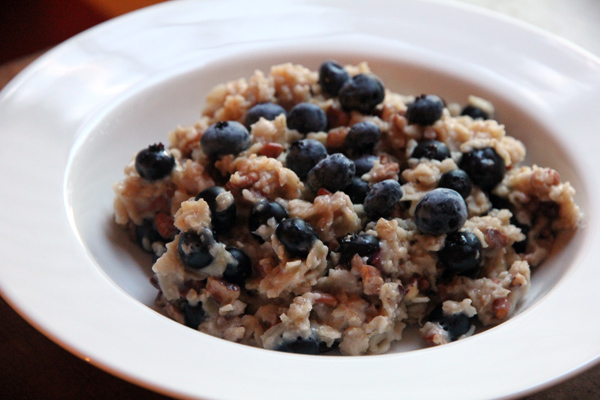



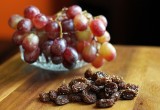



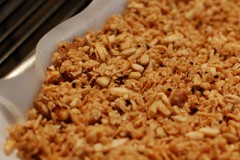

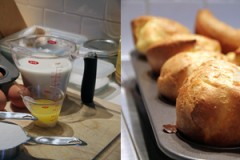

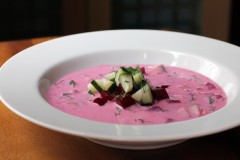
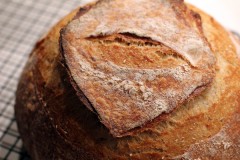
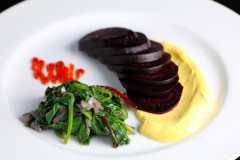




Hmm, looks really good ! What if you added the egg whites right in with the oatmeal and let them cook with the oats?
I haven’t tried that though I may now!
This sounds like the best way to start the day!